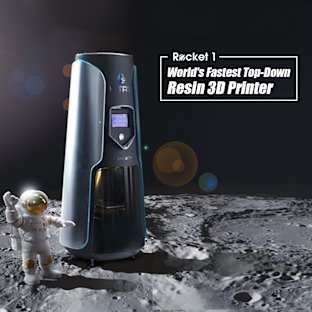The Linux Symposium (OLS) started in 1999 as meeting place for developers who worked together every day but never got to see each other face to face. 15 years later the majority of the people at that first event have become good friends, and the many work for the largest corporations in computing today.
OLS was also one of the conferences where a “first time paper writer”
might have a chance of having his paper selected, published and (for the
first time) stand in front of a knowledgeable audience, with the
speaker's legs shaking, as they presented their thoughts and asked for
opinions.
Jon maddog Hall, Linux International
What Happened?
When you run an event you have to make commitments in advance for things like venue space. The only way to estimate what you need is past experience, and based on this and feedback from previous attendees and sponsors we booked space in Montreal nearly a year in advance. During the following year several things happened, the economy collapsed, and sponsorship dropped suddenly by a massive amount, then immediately after the event one of the organizers departed to join another organization. This left the founder to deal with the losses, and because of how corporate law and secured credit works the protections of a limited liability company no longer provided any insulation from the losses.
Increasingly large sums of personal resources being poured into the debt with the aim to use revenue to cover the losses when the economy improved and our sponsors returned (which most sponsors assured us would happen the following year) but something else happened that year and their support did not materialize.
I learned about OLS during my final year of undergrad studies at Pune Institute of Computer technology (PICT). My proposal was accepted and paper published in 2010. I have done my best to participate every year since. Including these papers on my resume has helped me bag great Linux development jobs and now a place at Carnegie Mellon University where I am completing my Masters.
Swapnil Pimpale
The Plan
We need raise enough to pay down the losses that are currently part of a secured credit system, meaning that bankruptcy is not a solution as the debt will only continue to fall on the organizer personally.
A Personal Plea
While the event has been self-supporting in years after Montreal, I had to admit to the attendees at the end of the event this year that this would be ending. Many people expressed a feeling that having an independent and highly technical event was something they valued greatly and that they would like to help. This campaign is the best way we could come up with to reach out and offer the community a way to help.
The sad truth is that even in hindsight the only way to have avoided this would have been to suddenly cancel the event in Montreal and file for corporate bankruptcy leaving everyone with flights, hotel and other arrangements hanging and at the time with the repeated assurances that the short-fall was only short-term this felt like a far too drastic approach to the problem. However now I am personally stuck with the debt, interest and penalties on it adding up monthly and I just don't see a way to get out of this hole without help.
For the last 2 years I've been working like mad putting everything I have into trying to pay down this debt but I am failing to make progress because of the interest penalties.
Andrew, and all the good people who helped organize OLS each year, put
on quite a show, being intentional about building the community – not by
numbers (though for quite a while, attendance grew and grew) – but
providing space to build deep personal connections that are so critical
to the open source development model. It’s much harder to be angry
about someone rejecting your patches when you’ve met them face to face,
and rather than think it’s out of spite, understand the context behind
their decisions, and how you can better work within that context. I
first met many of the Linux developers face-to-face at OLS that became
my colleagues for the last 15 years.
Matt Domsch, Dell Inc.
You Can Help
We hope that you feel that our efforts over the last 15 years and our contributions to the Linux community should end in something other than financial disaster. We sincerely believe in the contributions we have made over the years and the movement we have helped to build. Even a small contribution will add up and help avoid the worst case outcome.
Testimonials
In 2008 a friend who considers OLS the most prestigious, academically-inclined Linux technical conference in the world recommended that I submit a paper. I presented to an amazing audience of researchers and engineers. I still reference this paper on my resume and it has contributed to my landing a full time job and contracts in the years since. Even today I still get calls and emails from recruiters who reference my participation in OLS.
Bob Murphy, La Vita Nuova, bobert@lavitanuova.com
Contact
I am happy to discuss anything here on a one on one basis with anyone and I can be reached at
ajh@linuxsymposium.org and we have a Facebook page at
https://www.facebook.com/linuxsymposium and we are on Twitter as @linuxsymposium
Being part of the Linux Community for nearly the last quarter century has been the best experience of my life and one I will be proud of forever.
Please keep in mind the 'perks' are just suggestions, even small amounts will help get things back on track and if you have other ideas please get in touch!
Some History
Intermezzo was first presented at the 1999 Linux Symposium.
The first presentation on the XFS port was presented at the 2000 event.
In 2002 it appears Wayne Meretsky released details on the AMD Hammer, a chip that was not announced to the public until April 2003.
The first public announcement/discussion of futexes was at the 2002 event in the paper "Fuss, Futexes and Furwocks: Fast Userlevel Locking in Linux" and this paper is still referenced in the current documentation.
From 2002-2006 the Kernel Summit was co-located with OLS.
Kdump was discussed in 2005, and the current documentation still uses the presentation as a reference.
hrtimer was inspired by the proposals in the 2006 presentation "We Are Not Getting Any Younger: A New Approach to Time and Timers"
sysfs was first publicly discussed in 2005 and the official documentation still uses Patrick Mochel's presentation details.
The four user-selectable IO schedulers (deadline, anticipatory, noop, and CFQ were first publicly presented in 2005.
Systemtap was also introduced at the 2005 event.
If you have other things you think should be on this list, get in touch!
Blogs & Articles
Jon maddog Hall published this blog posting on July 29th. http://www.linux-magazine.com/Online/Blogs/Paw-Prints-Writings-of-the-maddog/Ottawa-Linux-Symposium-May-get-by-with-a-little-help-from-its-friends
Neil van Dyke mentioned us on the 31st at http://www.neilvandyke.org/weblog/
Matt Domsch wrote something on Aug 1st, it covers many of the public issues we ran into; https://domsch.com/blog/?p=655
If you come across more mentions let us know!

































































































































